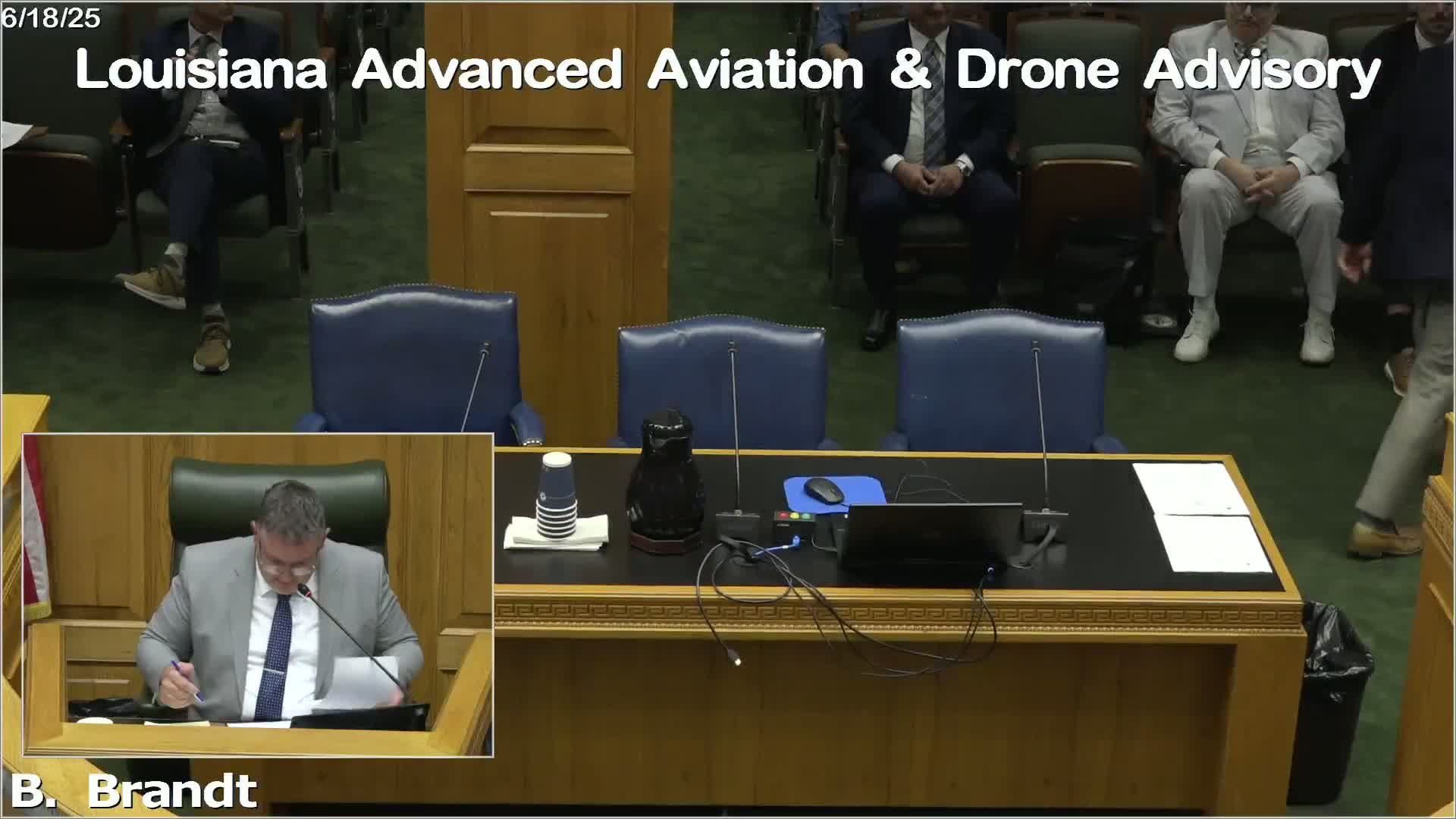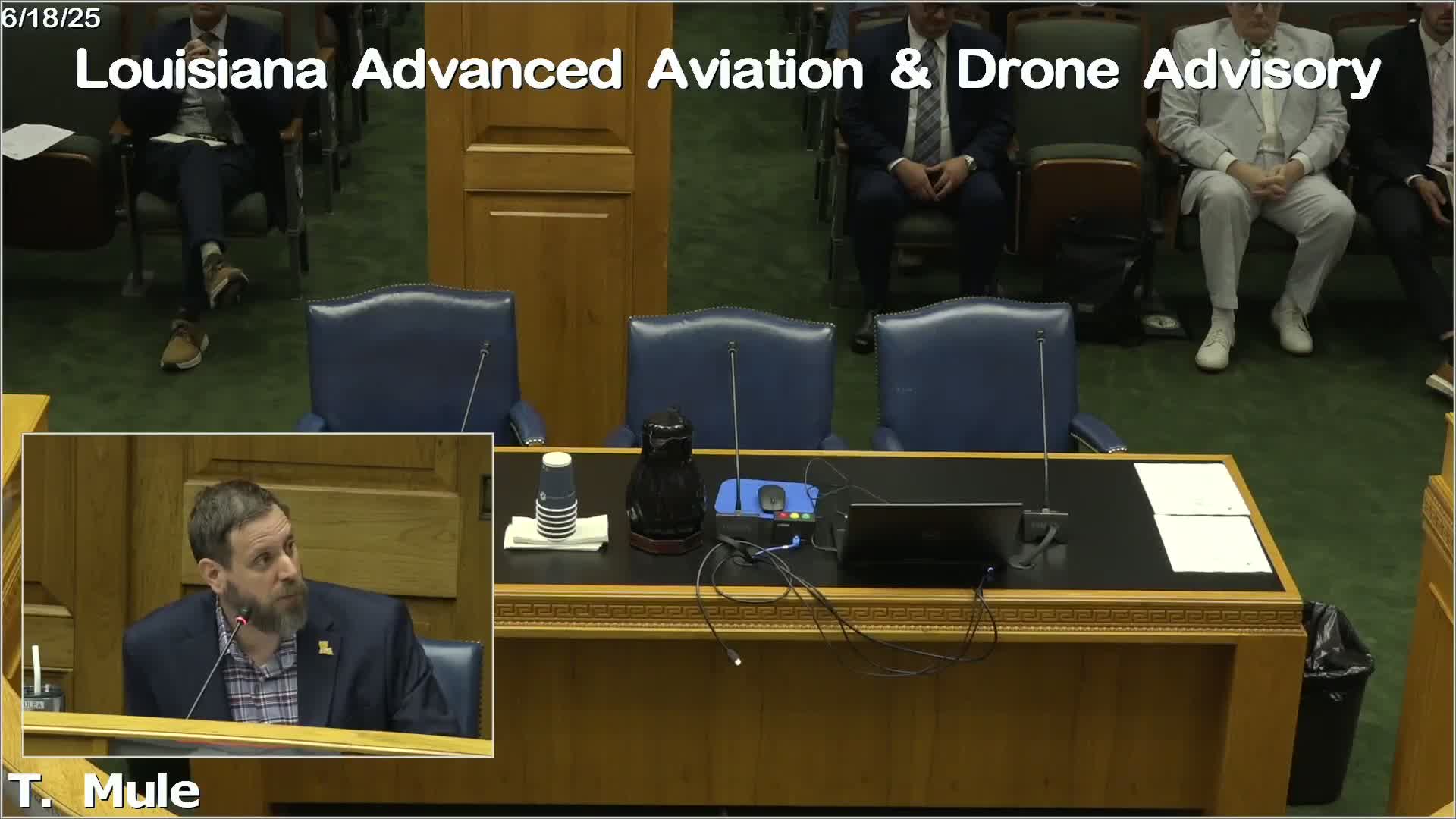Article not found
This article is no longer available. But don't worry—we've gathered other articles that discuss the same topic.

DOTD seeks consultant for statewide Advanced Air Mobility strategic plan; committee to pursue 'Future of Aviation Day' and workforce partnerships

Beta Technologies, Metro Aviation seek Louisiana support for electric aircraft network; operators highlight patient-transport benefits

